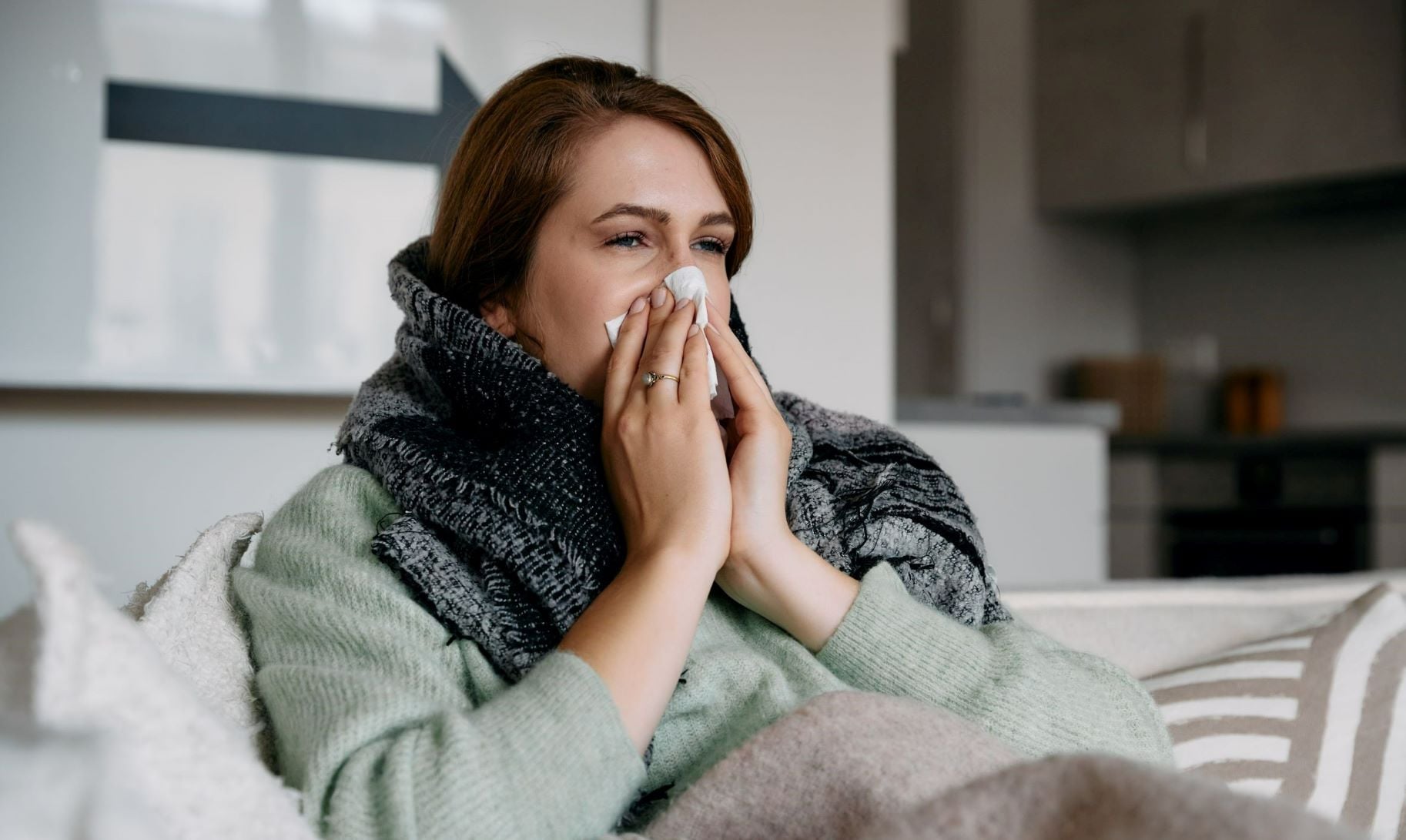Flu season preparation for people with diabetes

Flu season preparation for people with diabetes
Around 8% of the U.S. population gets the flu every year. That’s nothing to sneeze at, especially when you consider the consequences of contracting the flu can range from mild symptoms to serious complications. The CDC estimates about 30% of those hospitalized with the flu every year are people with diabetes (PWD). The reason is simple: when your body is tasked with dealing with one condition (such as diabetes) it can be harder for it to fend off a new issue like the flu.
But that doesn’t mean you should shut yourself in the house throughout the fall and winter. People with diabetes with solid self-management practices, who take the proper medical precautions, can reduce additional diabetes-related risks from the flu. As always, check with your health provider for any health questions or changes to your regimen.*
Flu season and diabetes
People with type 1, type 2, gestational, or any other diabetes variations are more likely to develop flu complications including these:
- Bacterial pneumonia
- Bronchitis
- Sinus infection
- Sepsis caused by inflammation in the respiratory system
- Inflammation of the heart, brain, and muscle tissue
- Organ failure
- Reduced glycemic control
You might be surprised to hear that reduced glycemic control can occur because of the flu. People with diabetes work hard to manage their blood sugar and a case of the flu can be an unexpected challenge when it comes to glucose control.
To combat illnesses like the flu, your body will produce more glucose than normal to give it the energy it needs to fight back. This effect can then be exacerbated by stress hormones like cortisol, which are released during periods of sickness and can reduce your body’s response to insulin. Getting your blood sugar back down after an illness can be difficult, especially with decreased insulin effectiveness.
Diabetic Ketoacidosis
It’s also possible to develop diabetic ketoacidosis (DKA) if high blood sugar persists. Since it’s harder to use the glucose your body produces during sicknesses, your body can begin to burn fat to make up for the loss of energy. If you burn fat for energy over an extended period of time, you can create acids called ketones. This can become harmful if they accumulate in the body.
If you start to notice symptoms like dry skin, increased thirst, nausea, vomiting, abdominal pain, or sweet-smelling breath on top of your flu symptoms, it is best to see a doctor as soon as possible in case you develop diabetic ketoacidosis.
Getting the flu shot
There’s a lot you can do to prepare for flu season with diabetes, but the first thing you should do is get the latest flu vaccine. Its a great first step! People who are vaccinated against the flu are 40%-60% less likely to contract the flu, a big boost for people with diabetes trying to reduce their risks.

In addition, people who catch the flu despite being vaccinated experience less severe symptoms. One study found people vaccinated against the flu were 59% less likely to be sent to an intensive care unit (ICU) if they got sick. Vaccinated patients who end up in the ICU spend an average of four fewer days there than unvaccinated ones.
The American Diabetes Association (ADA) recommends every person with diabetes get the flu vaccine. In fact, it’s a good idea to encourage friends, family members, and coworkers to get the vaccine as well to further lower your risks.
Self-management practices that can help
Keeping your body fed with the key nutrients it needs to fight off any illness, not just the flu, is a smart choice for any person with diabetes. While there is no such thing as a cure-all for the flu (not even vitamin C or zinc), making sure your body has all the nutrition it needs to function at top capacity will help you get through flu season with diabetes.
A balanced diet that reduces excess carbs and includes vegetables, fruits, grains, protein, and dairy — while avoiding additional sugars and trans fats — will give you everything you need to fight back. Of course, if you do catch the flu, taking medication like insulin consistently and on time will keep your blood sugar in recommended ranges.
Meanwhile, health organizations like the CDC and the ADA recommend everyone also take common sense precautions during the flu season. Avoid those who are already sick, cover your mouth when coughing, wash your hands, and keep wearing your mask indoors. Before you know it, flu season will be over.
*This is not intended to be a substitute for professional medical advice, diagnosis, or treatment. Always seek the advice of your physician or other qualified health provider with any questions you may have regarding a medical condition.



